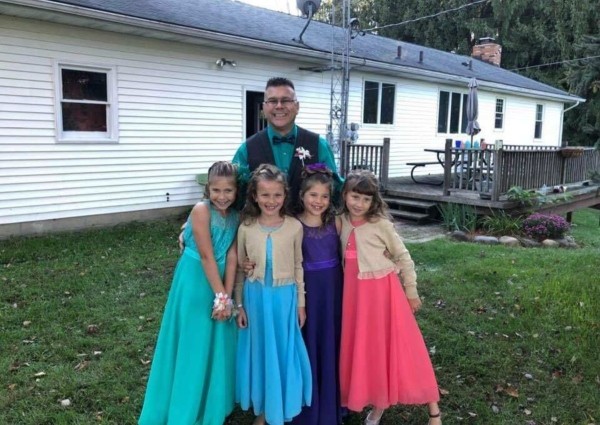4 awesome teachers who will make you want to cry

 PUBLISHED ONNovember 26, 2018 8:25 AMByTan Thiam Peng
PUBLISHED ONNovember 26, 2018 8:25 AMByTan Thiam PengA teacher at Teck Whye Primary School has gone viral for all the right fuzzy reasons after a video showed her hugging and encouraging a student as he collected his Primary School Leaving Examination results on Thursday (Nov 22).
The clip of Azlina Hassan was taken by the boy's mother and according to her, Azlina, who has been teaching for more than 29 years, would hug and comfort all her pupils on results day.
"Sometimes, people forget that a simple hug can make a world of difference to a child," Azlina told The Straits Times.
"I tell all my pupils: When you leave primary school, you leave not only with knowledge of English, maths and science... (You also) bring school values with you."
[embed]https://www.facebook.com/allsgstuff/posts/2818267624980615[/embed]
Azlina's approach and gestures have not only struck a chord with students and parents, but moved many online. The video has accumulated 1,570 reactions and 500 shares as of noon today.
Amidst stories of flirtatious teachers, porn-projecting teachers and lewd teachers these days, it is good to be reminded that many in this noble profession are still scale-bustingly noble. Here are four more teachers who should make you sniff a little.
1. STEVE CULBERT
The father-daughter dance is a traditional event in American schools.
The one at Gates Elementary in Davison, Michigan, was coming up but sisters Avery and Alivia Reece had just lost their daddy.
Their teacher, Steve Culbert, decided to stand in and bring the girls to the dance.

Culbert told a website, "I wasn't necessarily trying to be a father figure, just someone they knew that they could turn to.
"They have a great family. Their dad was their everything."
Culbert had been checking in with the Reeces after their father fell into a coma. He was taken off life support on Sept 19.
On Oct 13, the day of the dance, Culbert and his wife brought the girls to do their hair and dresses. He then surprised them with a limousine for the trip to the dance, before ending the evening with ice cream at McDonald's.
"When we were on our way, I said, 'I don't expect you to treat me like your dad. I know he's here with us."
2. RICHARD APPIAH AKOTO
How do you teach computing without computers?
One teacher in Ghana, who was so dedicated to making sure his students at a rural school kept up with the times, would draw the entire layout of Microsoft Word on a blackboard.
Betenase Municipal Assembly Junior High School had not had a working computer since 2011 and Richard Appiah Akoto would try his best to replicate the software whenever he teaches this lesson.
[embed]https://www.facebook.com/hottish.owura/posts/1948212815208114[/embed]
That's not all. In one interview he revealed he has also drawn keyboards, system units and others.
Akoto was universally praised and very quickly, help arrived.
A PhD student at the University of Leeds donated a laptop before computing school NIIT Ghana delivered five more desktop computers to Betenase.
When Microsoft got wind of the story, they offered to train and certify Akoto.
4. AMANDA STEFANSKI
Talk about setting an example.
Amanda Stefanski is a professor in education.
When one of her students Abby Harvey had trouble with attendance because there was no babysitter for Harvey's son, Stefanski told her to bring him along.
This happened:
[embed]https://twitter.com/ColumbiaKoala/status/1052606280513269760[/embed]
The teacher held and took care of the baby the entire period.
As an educator of future teachers, Stefanski wanted to "show them a real-life example of flexibility".
She added in an interview that she wanted young mothers to know they do not have to choose between education and family.
4. NG SHEH FENG

How do you react when two visually-impaired pupils ask to learn music as an O-level subject, something never done before in Singapore?
The easy thing to do would be to say that it was not available. Or you could do what Ng Sheh Feng did - she convinced the Ministry of Education and the Singapore Examinations and Assessment Board and took around a year adapting the syllabus.
From braille scores to reading out written lessons, it worked. The two Ahmad Ibrahim Secondary School students passed and have dreams of pursuing music.
Ng's passion for music is palpable.
She worked to popularise music elective in a culture where "there was a social stigma that music is only for the elite".
She added that at the end of the day, she does not want students to feel that anything is out of their reach.
Today, her school has 23 pupils enrolled in music.
tanthiampeng@asiaone.com